
Healing Depression & Anxiety via Digestion: the Acupuncture Approach
I honestly became an acupuncturist to help myself. Chinese medicine arrived as a type of “godsend” during my mid-20’s. I’d always suffered from depression and anxiety, which would negatively impact my sleep, breathing and digestion. Acupuncture was really the only thing that reliably helped me with these issues.
When I began my own acupuncture clinical practice, I naturally became an expert in treating anxiety, depression, insomnia, digestive problems and many other mental, emotional and psychosomatic ailments. It became my specialty.
I’ve always loved the spirituality that underlies Chinese medicine: the sacred mapping of meridians and points along the body; the consciousness and “spirit” contained within each of the acupuncture points.
Within each acupuncture point is a depth of meaning, potential and function. The acupuncture points have been studied, researched and commented upon for literally thousands of years by some of the greatest classical Chinese minds. They are imbued with philosophy and imagery coming from the Confucian, Buddhist and Taoist spiritual and medical traditions. The modern Europeans have also added their Judeo-Christian philosophy and Western medical insight into the acu-points to give them more Western resonant meaning.
Today my go-to acupuncture channels and points for treating anxiety and depression are those that “invigorate blood” circulation. These points usually have an instantaneous effect on the mood. Working with the blood, according to Chinese medicine, also works on consciousness. This is how these points are able to affect the mood. By invigorating blood circulation they also have the potential to change the way a person thinks, feels and behaves. They can alter habits, break addictions, promote mental and emotional breakthroughs and help a person to evolve consciously. Within Chinese medicine this is all achieved within the level of the blood and circulatory system.
Within my own process, I had to examine why I tended to fall into periods of depression and anxiety. What were my habits and patterns that were supporting these states, both behaviorally as well as mentally and emotionally? To the ancient Chinese, mental and emotional function is a digestive process. They saw the emotions to be highly influenced by the gut, especially the stomach and intestines. There is the habitual, behavioral aspect as well as the chemical: the “Yin” fluid component.
In Chinese medicine, all chemistry within the body is categorized as either “Yin” or “Yang.” The Yang is the functional, energetic aspect of physiology, while the Yin is the denser fluid based. Blood is the most dynamic Yin substance in the body. It is nourishing as well as intelligent, say the ancient Chinese. Within the blood lies consciousness, not just respiration. It is the precursor to what we’d consider hormones in modern thinking. The blood contains the thoughts and feelings that become our reality, in the same way the blood contains the building blocks that becomes flesh.
The core acupuncture text from the Han Dynasty is called the Ling Shu: the spiritual compass. Acupuncture is described as a way to heal the body, but also as a way to support the spirit.
The Ling Shu details psychosomatic tendencies relating to mental-emotional states. Chapter 10 begins by discussing the Lungs and its tendency to control a person’s sensual curiosity and drives. The natural state of the Lungs involves the ability and willingness to engage with life, sensually. The healthy Lung state makes us want to touch, be touched, explore, examine and engage with the world. Think of a curious young child and their endless curiosity and drive to explore: this is empowered by their Lung energy – the basis of psychosocial development.
Each of the acupuncture channels has a partner. They are matched one viscera (“solid”) organ with one bowel (“hollow”) organ. The natural partner to the Lungs is the Large Intestine.
The Lungs also have a very strong relationship with the Heart. The Ling Shu describes the internal organs as being like members of an imperial court. The Heart is seen as the emperor; the Lungs as the prime minister.
The partner of the Heart, to match the Lungs, is the Small Intestine. The intestines are the chief organs and channels to drain heat from the chest. But when viewed in a psycho-spiritual way, they support the Lungs and Heart in another way related to consciousness, especially within psychosocial development.
The Heart is the organ that “houses” the spirit (called Shen in Chinese medicine) which gives a person the ability to be animated: to have the drive to learn and engage in an interpersonal way that feeds and fulfills a spiritual quest for meaning.
The Lungs gives a person the drive to engage, while the Heart drives a person to interact. They both spark a sense of excitement and curiosity that causes a person to want to reach outside of themselves into the world.
Physiologically the function of the Lungs is to govern respiration which it does through its ability to “diffuse” its energy (Qi), spreading it throughout the body so as to make contact with the external world, in both a defensive but also engagement capacity. The Lung Qi is also that which supports the Heart in its function to circulate the blood. It is the Qi of the Lungs that allows the blood managed by the Heart to move. This establishes the strength of the relationship between these two organs. The emperor possess the “mandate from heaven” (a Confucian term), but it relies upon the prime minister for direction when putting this mandate into practice.
The energy of the Lungs, through its instinctive drive to engage with life directs the Spirit of the Heart to interact so as to play out the spiritual mission of one’s life. This create a feedback exchange between the self and the outer world that allows us to not only learn about the world, but also learn about ourselves. Through this process we come to refine who we are and the life we want to live. This is the process by which the Heart allows us to create meaning.
It is from the intestines that we are able to develop discernment within this process. Without the guiding, editing and protective support of the intestines, the Heart and Lungs can run amuck, engaging with people and situations that are unhealthy and inappropriate. With everything being relative to our individual personality and “spirit path,” nothing is seen as intrinsically bad or good, but only appropriate or inappropriate for oneself based on our individual nature.
The Kidneys are the other organ with an instinctive drive to reach out into the world. To the ancient Chinese, the Kidneys held special resonance with the intrinsic self: one’s nature and essence. Within the Kidneys is the drive to extend our “essential self” into the world: to make our mark. Ambition is located within the Kidneys, as is the will to achieve.
The organ partner of the Kidneys is the Bladder whose role it is to instruct the Kidneys as to their physical limits and capabilities so they won’t overextend in way that depletes or destroys the self.
The role the intestines play in the process of engagement involves discernment. The name of the Small Intestine’s chief point for blood regulation is called the “Upright Branch.” The Large Intestine’s point is called the “Veering Path.”
Within my own process healing my chronic depressive and anxious tendencies, I found I had to strengthen the relationship between the Lungs, Heart and Kidneys and their supportive bowel organs.
The relationship between the Heart, Lungs and Kidneys is seen as very important in Chinese medicine. It is called the “Yi Guan”: the one-link. The basis of mental-emotional health in Chinese medicine is predicated on the free-flowing interaction between the Heart and Kidneys. Philosophically this means the “essence” is freely communicating and interacting with the “spirit.”
In Chinese philosophy a person is given a two-fold direction in life, which comes celestially from their “spirit,” but also from the ancestral which is implanted in the essence (or DNA in modern language). Mental health requires that both the essence and spirit interact and co-direct a person’s path in life, creating a cohesive personality and life that will successfully fulfill the lessons “mandated” by both the ancestral as well as the spirit world.
The most common diagnosis for a person suffering from mental health issues is “miscommunication of the Heart and Kidney.” The Lungs are one of the major ties between the Heart and Kidneys, and often a reason for their miscommunication.
The importance of the Lungs to the Heart-Kidney (spirit-essence) relationship involves the spiritual attribute that is “housed” within the Lungs. While the Shen (great spirit) is housed in the Heart, and the essence is housed in the Kidneys, the Po (corporeal spirit) is housed in the Lungs.
The Po is related to our drives and instincts. It is the primal, animal aspect of the self. The Lungs are seen as the “prime minister” to the Heart who is the emperor. But the prime minister also needs advisors. The Po, being a primal spirit source, has a natural resonance with the intestines, located in the lower body which is associated with the more primal and mysterious aspects of life.
The intestines are that which sort through the food and drink brought into the body. They are responsible for discerning what has value, what is toxic and what is extraneous to the self. They do the same within the interactive process.
The Lungs are primal themselves, involved in the arena of the instinctual drive to engage with the world. They manage the motivation and energy source that allows contact to be made. They do this instinctually in a way similar to respiration.
It is said that the Lungs (and Heart) are rather innocent and open (unconditional) in their engagement. Like a young child, they will explore and interact with anything. It is through the supportive influence of the intestines that they learn what is healthy, safe and appropriate to engage with and what is not.
Therefore learning, on a social level is dependent on the intestines.
The Large Intestine is that which helps us learn discernment on a base level: the capacity to recognize this is different than that. It is the Small Intestine which adds morality: the idea of something being good or bad.
However, without the basic capacity to discern one thing from another, the Small Intestine cannot create its moral meaning. Just as without the basic drive to engage coming from the Lungs, the Heart is unable to interact and create meaning within the self.
To heal from depressive or anxious tendencies, it is necessary to strengthen and develop our capacity to discern and create a moral sense of meaning that will inform and direct us. We need to develop the capacity of the intestines within their psychosocial function. This may also involve strengthening metabolism and digestion.
This process is easiest to see in the case of the Kidney-Bladder relationship. The classic symptom associated with these organs when they are heavily taxed are panic attacks, paranoia, and an “alarm system” that either goes off all the time or fails to alert us when we’ve gone too far in our behavior. The Bladder is that which provides feedback regarding our physical limits. It can either place us in a hyperactive, hyper vigilant state where we are afraid (or paranoid) about everything. Or it can fail to tell us when we are starting to go beyond our limits and doing damage to ourselves.
In terms of the Small Intestine, this system is more concerned with “toxicity”: the idea that some people, behaviors and things are just not good for us. They can “make us sick.” Or in Confucian moralistic terms: “corrupt us.” I myself am not a moralistic person, but I do understand when my Small Intestine is sending me messages that I’m engaging with something or someone that is not healthy for me. I used to be alerted somatically through indigestion, throat problems, asthma, low back or shoulder/neck pain or anxiety and depression. However as I’ve cultivated and strengthened my Small Intestine function, I’m now able to identify the messages and learn from them, without falling into states of anxiety and depression.
I recall when I was younger I was a very innocent person. I lacked discernment. I actually had trouble differentiating this from that, especially in terms of people. I thought we were all the same. And while this can be a very charming, sweet attribute, it made social interaction difficult. I also had difficulty knowing my limits. I didn’t always know when enough was enough until I’d reached a place of exhaustion. Instead I would become chronically exhausted, depressed and anxious with insomnia and irritable bowel syndrome.
The root of my dysfunction was located in my Stomach, which Chinese medicine says is the origin of blood in the body. It is also seen as the origin of feeling. The classic symptom associated with dysfunction of the Stomach in the Ling Shu is a type of manic depressive (Dian Kuang) tendency. My form was rather mild. But I’d go into manic states where I had a tremendous amount of energy and enthusiasm which I’d ride until I became exhausted, depleted and depressed. I even had a period in my life where I became very thin and was unable to put on weight. I had very little discernment, and thought there were no limits. I was insatiable, which causes high highs and low lows. Chronic anxiety and depression were the byproducts.
Acupuncture corrected these tendencies. They key to my treatment was healing and strengthening my digestive organs: the stomach, intestines and bladder. Once these were stronger, the Heart, Lungs and Kidneys were able to find their “one-link” and my anxiety, depression and a whole host of other symptoms reduced and then disappeared.
Philosophically, the origin of my blood (thoughts and feelings) and their management was what needed to be treated: the Stomach as the origin and the intestines as the safeguards. While anxiety is most often associated with the Heart and depression with the Lungs in Chinese medicine, it was really within the supportive organs that the dysfunction was occurring. It was my ability to filter my thoughts, discern and decide what is toxic and what is nourishing and safeguard my energy that finally alleviated my suffering.

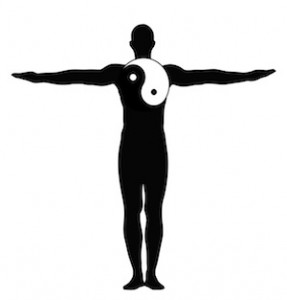
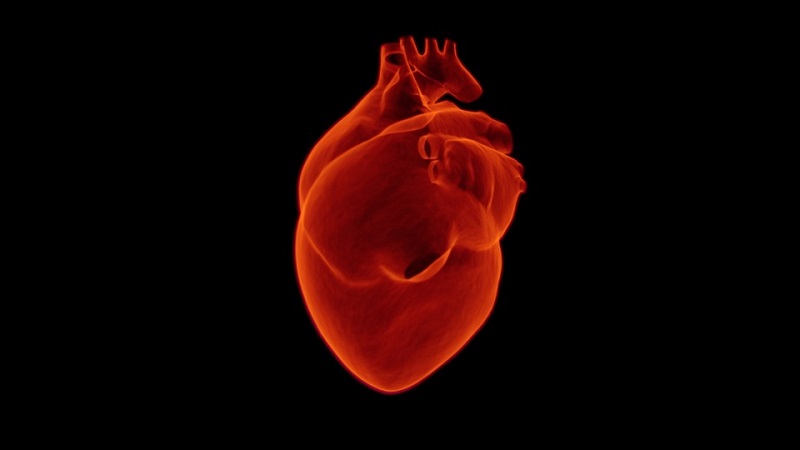
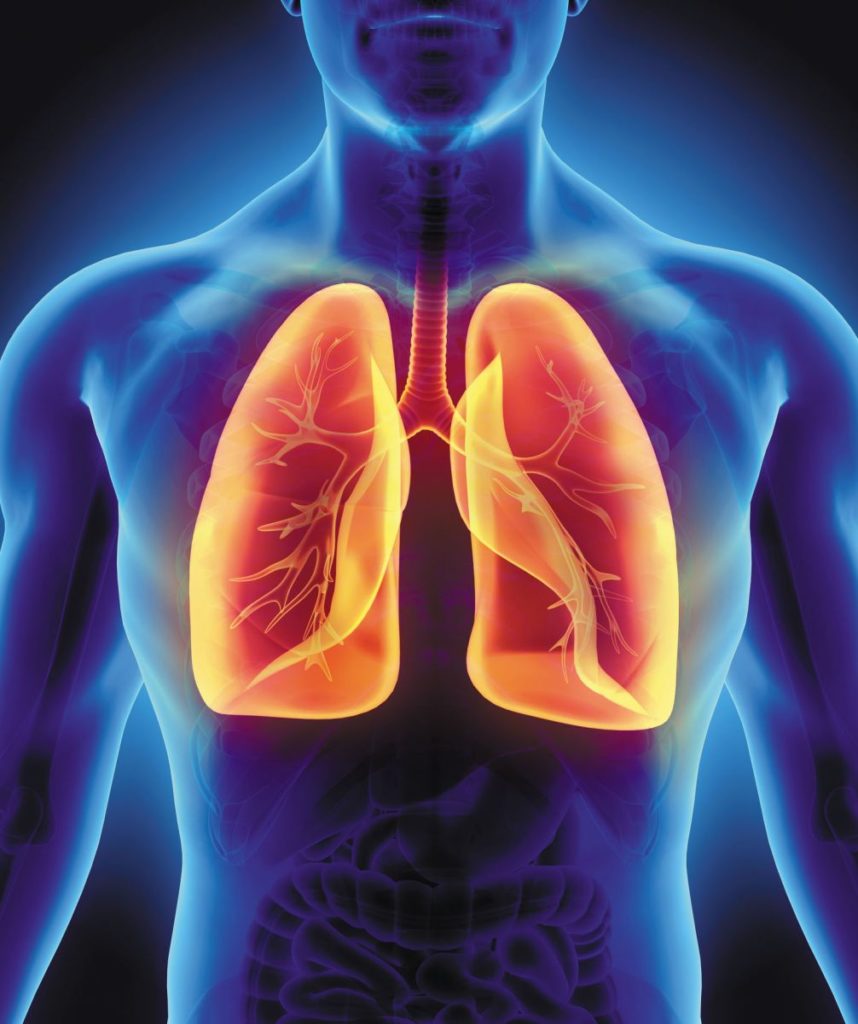
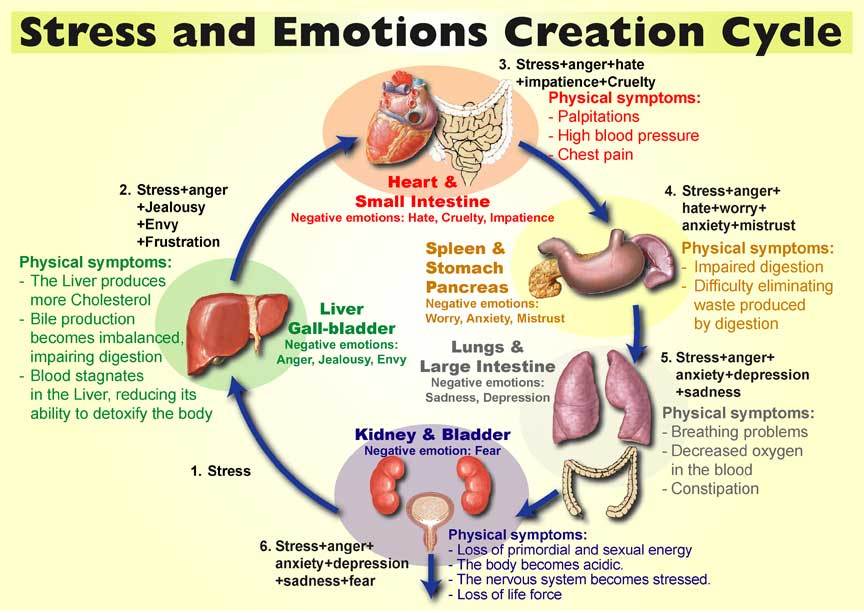
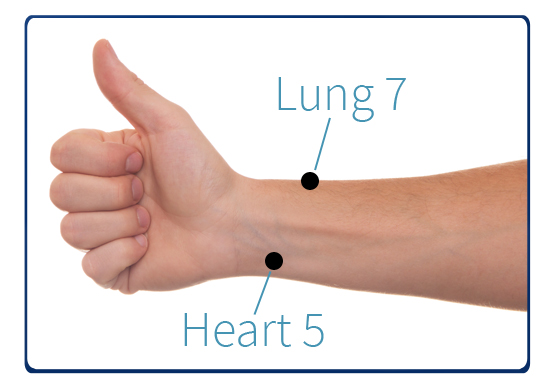

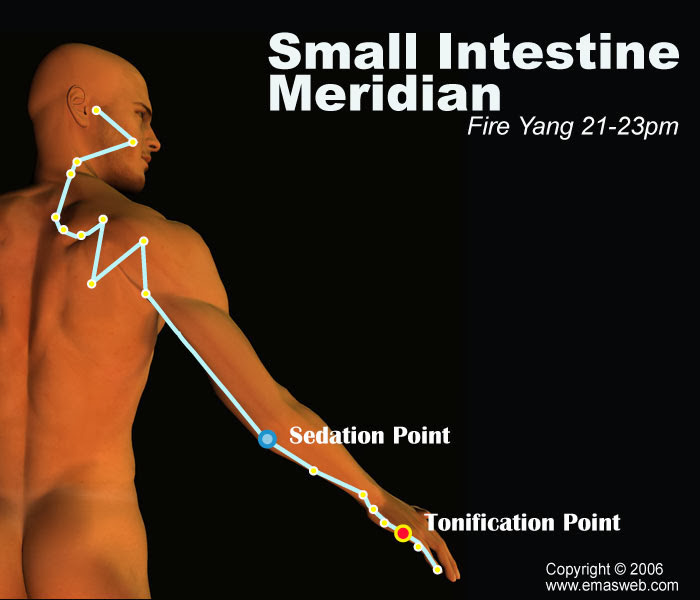
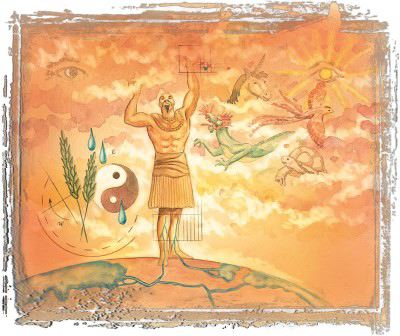
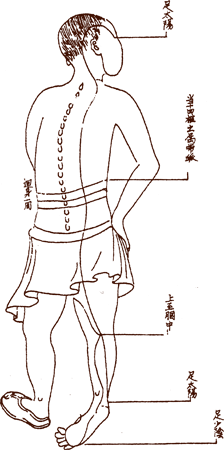


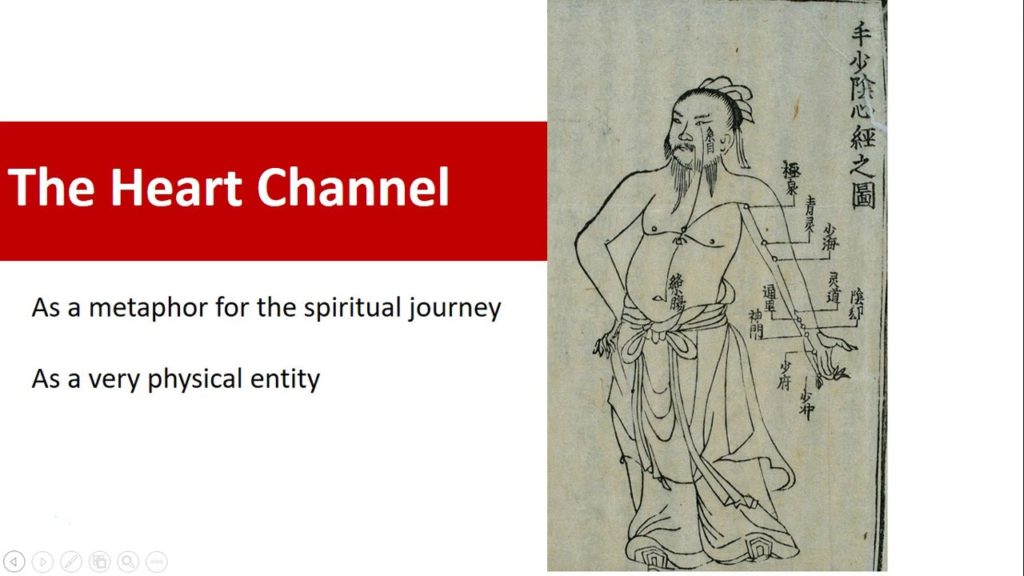
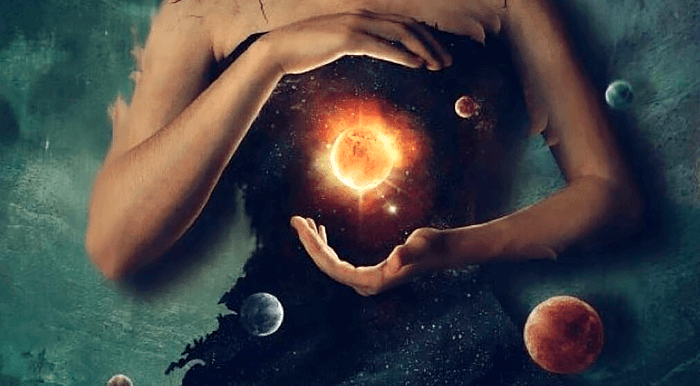



No Comments